2012 Vuelta route revealed
Stage distances for Spanish grand tour announced
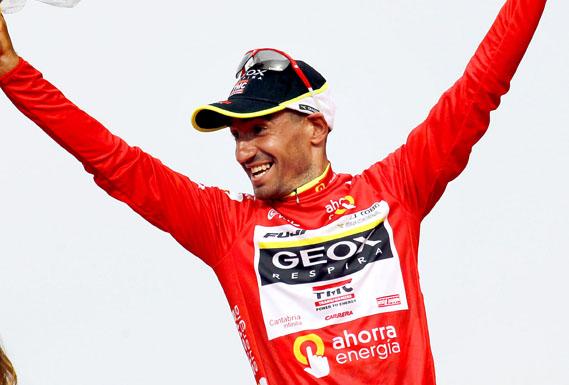
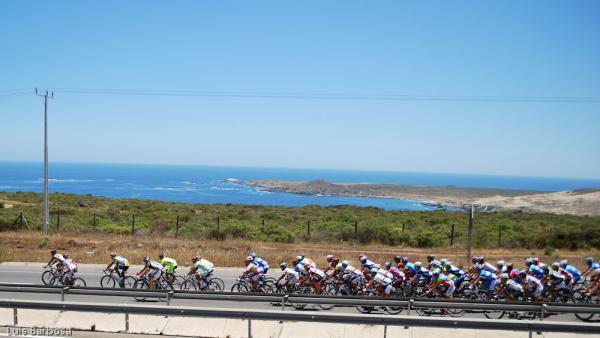
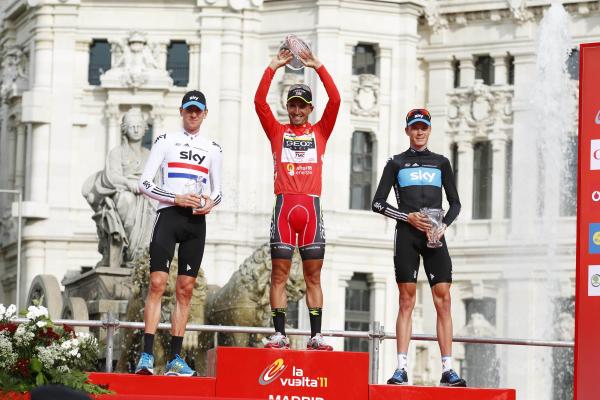
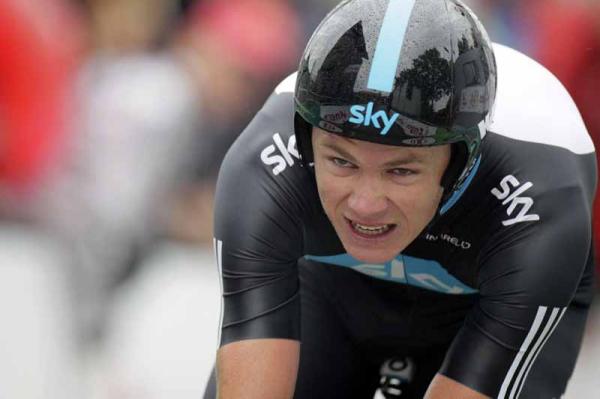
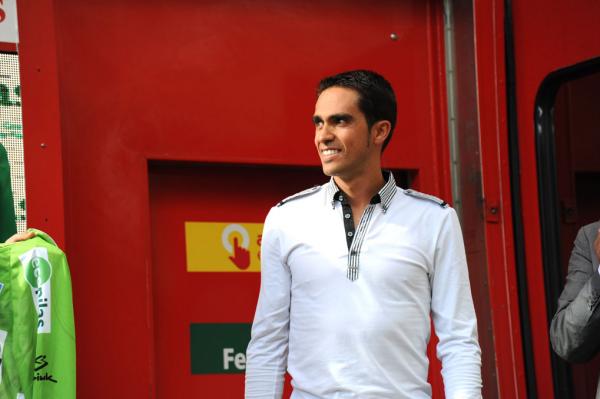
It probably won’t come as much of a surprise to hear that the 2012 Vuelta a España route will suit the climbers, as that is very much the way the race has gone in recent years. However, the itinerary unveiled by race director Javier Guillén in Pamplona’s Palacio de Congresos on Wednesday morning looks so climber-friendly that it’s hard to see how a time trial specialist or rouleur will get a look-in at all.
As was indicated when Marca leaked most of the details of the route on the eve of the presentation, the 67th edition of the Vuelta will take place in northern Spain. Madrid is the race’s most southerly point, reached on the final day.
The race starts in the shadow of the Pyrenees in Pamplona on August 18 with a 16km team time trial. The route initially heads north-west into the Basque Country, where the first of seven finishes that are officially listed as summits is located on the Arrate climb above Eibar. The next comes the following day at Valdezcaray in the neighbouring province of Rioja.
“There are so many summit finishes because that is what the public demand,” Guillén explained. “We’ve gone out looking for short and explosive stages.”
The route then tracks back itself, heading south of Pamplona and into the Pyrenees to Jaca for what is the first of three unofficial summit finishes. This will take the race up to the Fuerte de Rapitán, which is rated a third-category climb as it features ramps of 11%. Surprisingly, this is listed as a flat stage by the organisers, which perhaps underlines how climber-friendly this route is.
Two days on from that there is a more severe climbing test up to the Santuario Canolich in Andorra. This is one of the “many novelties” promised by Guillén and sections of 18% suggest this will be a very tough day. The first part of the race finishes in Barcelona, where the riders will tackle the Montjuich climb on which Thor Hushovd edged out Oscar Freire to win a stage in the 2009 Tour de France.
The first rest day brings a long transfer from one corner of Spain across to the opposite corner in Galicia. The only individual time trial comes on stage 11. Measuring just 40km, it surely won’t be enough to prevent the specialist climbers dominating the race, especially given what lies just around the corner.
The latest race content, interviews, features, reviews and expert buying guides, direct to your inbox!
The next day brings another 3rd-cat climb that is not officially listed as a summit finish. On this occasion it’s the Mirador de Ezaro above La Coruña. The 28% ramps there should suit Joaquim Rodríguez, who has made such super-steep climbs his forte at the Vuelta over the last couple of years. Another day beyond that brings three back-to-back summit finishes that lead up to the second rest day.
These start on the stunning Ancares pass that featured on the 2011 edition of the race for the first time. Next comes one of the Vuelta’s iconic summit finishes, Lagos de Covadonga, and following that is another new finish at the Cuitu Negro. This climb currently exists only as a dirt road above the Valgrande-Pajares ski station, but it will be resurfaced in the coming months, providing a 2.5km extension to the climb with sections of 25%.
Following the second rest day, there’s another uphill finish on the second-category Fuente Dé in the Picos de Europa, then a couple more straightforward stages before the final summit finish on the Bola del Mundo above the Navacarrada pass, north of Madrid, on the penultimate day. Two years ago this was the setting for an epic battle between Vincenzo Nibali and Ezequiel Mosquera, with Mosquera taking the stage – before being subsequently banned – but Nibali doing enough to hold on to the leader’s jersey.
As the curtain was formally lifted on the route, all eyes in the Palacio de Congresos were on Joaquim Rodriguez (Katusha), who will have been delighted by the plethora of sharp summit finishes that pepper the route. “Purito is going to love this route because he can win the Vuelta,” Euskaltel-Euskadi’s Samuel Sánchez pointed out.
The man himself could scarcely hide his enthusiasm for a Vuelta tailored expressly to his talents, with the 40km time trial to Pontevedra on stage 11 the only obvious stumbling block. The second half of the race should offer Rodriguez ample opportunity to recoup any losses, however.
“The first part of the Vuelta is where you don’t want to lose the race, the second part is where you will win it,” Rodriguez said. “There are lots of explosive summit finishes. I like it, I like it, I like it…”
The route of the 2012 Vuelta a España:
Stage 1, August 18: Pamplona team time trial, 16.2km
Stage 2, August 19: Pamplona-Viana, 180km
Stage 3, August 20: Oion-Arrate (Eibar), 153km
Stage 4, August 21: Barakaldo-Valdezcaray, 155km
Stage 5, August 22: Logroño-Logroño, 172km
Stage 6, August 23: Tarazona-El Fuerte del Rapitán (Jaca), 174km
Stage 7, August 24: Jaca-Motorland (Alcañiz), 160km
Stage 8, August 25: Lleida- Coll de la Gallina (Andorra), 175km
Stage 9, August 26. Andorra-Barcelona, 194km
August 27: Rest day
Stage 10, August 28: Ponteareas-Sanxenxo, 166km
Stage 11, August 29: Cambados-Pontevedra time trial, 40km
Stage 12, August 30: Vilagarcía-Mirador de Ezaro (La Coruña), 184.6km
Stage 13, August 31: Santiago de Compostela-Ferrol, 172.7km
Stage 14, September 1: Palas do Rei-Los Ancares, 152km
Stage 15, September 2: La Robla-Lagos de Covadonga, 186.7km
Stage 16, September 3: Gijón (Villa de Jovellanos)-Cuitu Negro, 185km
September 4: Rest day
Stage 17, September 5: Santander-Fuente Dé, 177km
Stage 18, September 6: Aguilar de Campoo-Valladolid, 186.4km
Stage 19, September 7: Peñafiel-La Lastrilla, 169km
Stage 20, September 8: Palazuelo del Eresma-Bola del Mundo, 169.5km
Stage 21, September 9: Cercedilla-Madrid, 111.9km
Peter Cossins has written about professional cycling since 1993 and is a contributing editor to Procycling. He is the author of The Monuments: The Grit and the Glory of Cycling's Greatest One-Day Races (Bloomsbury, March 2014) and has translated Christophe Bassons' autobiography, A Clean Break (Bloomsbury, July 2014).